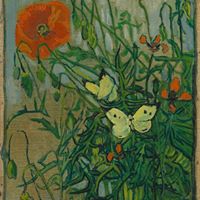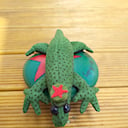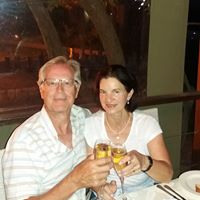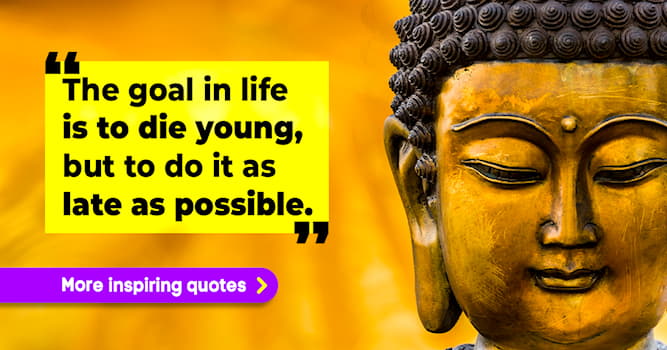What are some interesting and unique facts you know about African countries?
8/13/2019
5,440 views
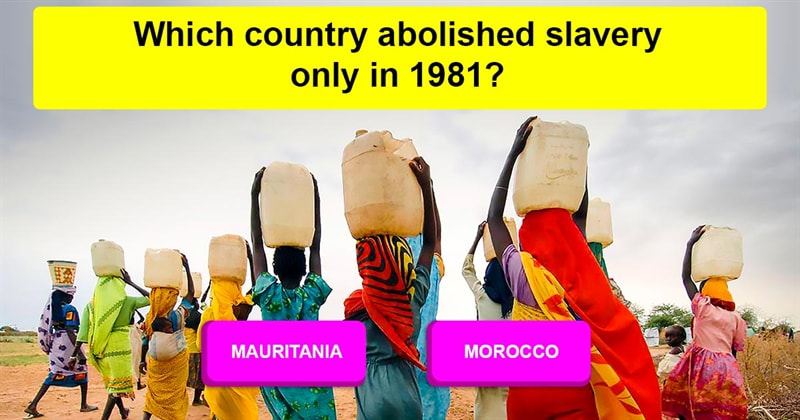
- Algeria: The Sahara Desert engulfs about 90% of Africa’s largest country. Last year in January, the Algerian Sahara experienced snowfall, something that has only happened to the world’s largest hot desert 3 times in the past 40 years.
- Angola: In the sixteenth and seventeenth centuries, part of Angola was ruled by a nation-state called the Kingdom of Ndongo, also known as Dongo. The king or queen of Ndongo was called an ngola - hence the country’s modern name.
- Benin: In Benin, it is considered bad etiquette to eat with your left hand, or worse still, give a handshake with your left hand.
- Botswana: Botswana is home to the Okavango Delta, the largest inland delta in the world. The Okavango river doesn’t flow into a sea or lake, it just peters out in the middle of the land. The delta has an area of 15,000 square kilometres and some 150,000 islands.
- Burkina Faso: This country is one of the richest in art and culture in Africa. One Burkinabé ethnic group, the Bobo, are known for their exquisite masks. During fertility ceremonies, painted butterfly masks are worn to invoke a god known as Do.
- Burundi: The Ruzizi River of Burundi is the haunt of the infamous Gustave. Gustave could be the world’s largest Nile crocodile, and the deaths of over 300 people have been attributed to him. He’s also survived direct gunfire and allegedly kills and eats fully grown hippos. He was the inspiration for the (mediocre) 2007 film Primeval.
- Cape Verde: This often-forgotten archipelago was the first-ever tropical European settlement, as it was colonized by the Portuguese in 1462. It went on to become an important stop for sailors on long voyages and both Columbus and Elcano (Magellan’s successor) resupplied there.
- Cameroon: Cameroon is the primary home of the aptly named goliath frog, the largest frog in the world. About a foot long, the adults have been known to eat very large prey like other frogs, turtles, snakes and even bats.
- Central African Republic: The CAR is the possible hideout of Joseph Kony, one of the world’s most wanted men. The warlord and his supporters - who believe him to have mystical powers - have led a brutal 26-year campaign to overthrow the Ugandan government, committing unspeakable atrocities along the way.
- Chad: Thousands of years ago in the African Humid Period, the Sahara was green, and Lake Chad was probably the largest lake in the world. At over 402,000 square kilometers in area, it would have outsized the Caspian Sea and made its modern equivalent look like a pond.
- Comoros: Comoros is home to the main population of West Indian coelacanths. In 1938, a trawler first turned up one of these strange fish, and it was later identified as a coelacanth - a type of animal which was thought to have gone extinct hundreds of millions of years ago! The discovery shocked the world.
- DR Congo: After a 5-year term starting in 2006, Congolese president Joseph Kabila secured a controversial second term. Then, in 2016 when his time was up, he refused to leave office. Elections were delayed three times, and Kabila bought himself a further two illegal years as president.
- Congo Republic: Here you can find Diosso Gorge, also known as the “Grand Canyon of the Congo” because of its spectacular red cliffs. Despite its natural beauty, the country’s director of environment once approved the dumping of 1 million tons of toxic waste into the gorge.
- Cote d’Ivoire: In this nation’s capital, Yamoussoukro, you’ll find the world’s largest church, the Basilica of Our Lady of Peace. It was completed in 1989, and estimates say it may have costed up to 600 million US dollars.

- Djibouti: The lake of Lac Assal, Djibouti, is the second-saltiest water body in the world, after a pond in Antarctica. 10 times saltier than the ocean, the waters are so saline that they are devoid of any aquatic fauna whatsoever.
- Egypt: According to archaeological evidence, the Great Pyramids were not built by toiling slaves, but trained, salaried workers. These free men would have worked for shifts of 3–4 months, living in a nearby camp where they were fed, watered and received medical attention.
- Equatorial Guinea: The capital of Equatorial Guinea is Malabo, situated on an offshore island - making it one of the only countries with a capital not on the mainland. However, a new capital, Oyala, is under construction, set to be complete by 2020.
- Eritrea: What is now Eritrea was the site of the mysterious Iron Age kingdom of D’mt, one of the first advanced civilizations in Sub-Saharan Africa. The kingdom emerged at around 1,000 BC, and disappeared for unknown reasons in ~400 BC.
- eSwatini: Never heard of this one? That’s because, until 2018, it was known as Swaziland. It was renamed eSwatini, meaning “land of the Swazis”, by King Mswati III, pictured below. He’s allowed to do that because he’s one of the world’s very few absolute monarchs.
- Ethiopia: Though it’s very controversial, some say Ethiopia was never colonized by Europeans. In the famous Battle of Adwa, an Italian colonial army of less than 18,000 was met by an Ethiopian force of 100,000 soldiers, many of them wielding swords and spears. And the Africans won.
- Gabon: This is one of the most promising African countries for wildlife conservation, as it is fairly prosperous, politically stable and biodiverse. Of the nation’s rainforests, which make up 85% of its area, a whole 11% is dedicated to natural parks and wildlife reservations.
- The Gambia: The highest point in all of the Gambia is the aptly named Red Rock - which is a measly 53 metres above sea level! I couldn’t find any good pictures, but from what I’ve read… yeah, it’s basically just a red rock. Here’s a random picture of Gambia instead.
- Ghana: The Akan people of Ghana often name their children after the day of the week they were born on. Similar to a horoscope, the day of birth is also thought to influence the child’s future personality and profession.
- Guinea: Despite being rather small for a country (though as an Irishman I can’t say much), roughly a quarter of all the known bauxite in the world is found in Guinea. Bauxite is a reddish rock and the world’s main source of aluminium, and is mined on a huge scale in Guinea.
- Guinea-Bissau: Unfortunately, despite once being hailed as a potential model for development, this is one of the poorest countries in the world. In a typical sample of 1,000 Bissau-Guineans, 15 have Internet access, 8 have a landline and only 1 has a mobile phone.
- Kenya: Some of the earliest human remains known have been found in Kenya, leading some to hypothesize that humans first evolved in what is now this country or near it. As a result, the region is nicknamed the “Cradle of Humanity”.
- Lesotho: This is the only country in the world situated entirely over 1,000 metres above sea level, and one of two where the average altitude is more than 2,000 metres. Hence, it’s often referred to as the Kingdom of the Sky.

- Liberia: This nation was founded and created exclusively for the purpose of being a place where freed African-American slaves could migrate to and live. Its first ever president, Joseph Jenkins Roberts, was a former slave from Virginia.
- Libya: Overall, Libya is perhaps the driest and hottest country in the whole world. Its average annual precipitation is 55 millimeters - compare that to the USA’s 1,035. Sometimes, here, a drop of rain doesn’t fall for decades at a time.

- Madagascar: Excluding Antarctica, Madagascar was the second-last significant landmass to be reached by humans - it was only settled at around 500 AD. And despite it being less than 400 km off the African coast, African colonists were beaten to the island by Austronesians from across the Indian Ocean!

- Malawi: Lake Malawi is Africa’s third largest and second deepest lake, and has more fish species than any lake in the world, at an estimated 1,000. In the rainy season, millions of midges hatch beneath the surface and emerge, forming impossibly huge swarms like plumes of smoke. This is, in fact, the largest gathering of animals on Earth.
- Mali: The Bandiagara Escarpment, Mali, is a huge sandstone cliff dotted with Dogon villages of cliff-dwellings. While the architecture is very impressive, it is extremely inadvisable to visit as violence occurs there on a daily basis.
- Mauritania: Mauritania was the last country to abolish slavery, which it only did in 1981. Despite this, it’s thought that there are still over 90,000 slaves still in Mauritania.

- Mauritius: The famous dodo bird of Mauritius is usually depicted as a plump, awkward bird with dull grey plumage. However, a 1625 painting by Ustad Mansur, famed for his accuracy, confirms that it was slimmer and more elegant than we thought, with a rich brown and gold colour scheme.
- Morocco: TheOuarzazate Solar Power Station, Morocco, is the largest concentrated solar power plant in the world. When finished, it will produce 582 megawatts, saving us from over 700,000 megatons of CO2, and have cost an expected $9 billion.
- Mozambique: Mozambique’s Gorongosa was once a national park rich in wildlife - however, in the ‘80s, the area was ravaged by brutal civil war and turned into a wasteland. But thanks to a $10 million, 8-year restoration effort, it is once more a thriving ecosystem of spectacular fauna.
- Namibia: In Namibia’s Namib Desert (the oldest desert in the world, having been around for 80 million years) you can find the tallest dune in the world, known as Big Daddy. Big Daddy is indeed big, as it’s a staggering 325 meters tall. It faces another large dune, appropriately named Big Mama.
- Niger: In 1796, the Scotsman Mungo Park became the first European to travel the course of the river Niger, having brushes with death with hippopotamuses and tribal armies along the way. He went on a second expedition to the river in 1803, and drowned as he was chased into the water by spear-wielding natives.
- Nigeria: Nigeria has its own film industry, known as “Nollywood”, which produces an impressive ~10,000 films every year. Nollywood films are famously cheesy and often repeat clichés. They’ve also been the source of a few memes well-known in the Western World…
- Rwanda: The Rwandan capital, Kigali, is hailed as Africa’s cleanest city. Hundreds of millions of dollars have been spent on reducing traffic, improving services and cleaning up waste, and the head of the UN Environment Program went so far as to call it the “cleanest city on the planet”.
- São Tomé and Principe: As Africa’s smallest country in terms of both area and population, there are only six banks in the whole island nation.
- Senegal: The world’s largest collection of megalithic structures is in Senegal - the Senegambian Stone Circles. Covering an area of 30,000 square kilometres, there are some 29,000 pillar-like stones forming a total of 17,000 rings, built by some mysterious ancient civilization.
- Seychelles: This archipelago is the sole home of Lodoicea maldivica, a palm species which holds 5 botanical world records: the largest fruit (42 kilograms), the largest seeds (17.6 kilograms, pictured), the longest cotyledons (4 metres), and the most efficient recovery of nutrients from dead leaves.
- Sierra Leone: During its recent civil war, Sierra Leone was an infamous producer of blood diamonds - diamonds mined to fund war. The RUF, a brutal revolutionary group, were making $125 million yearly from diamond mining, and so the UN imposed sanctions on diamonds until the war ended.
- Somalia: In 2010, professional badass Mike Spencer Bown shocked Somali authorities by declaring himself a tourist - the first in the war-torn nation in decades. Over 23 years of travel, Brown has been to every country in the world, visited Saddam Hussein’s home town, caught malaria twice and been arrested countless times.
- South Africa: What do you think of when you hear “African wildlife”? Penguins? I doubt it. However, many South African beaches are home to colonies of African penguins, unique to SA and Namibia. Chances are you’ve seen an African penguin, too, as they’re very popular with zoos.
- South Sudan: In 2016, inflation in South Sudan soared to a shocking 835.7 percent, one of the highest inflation rates recorded. Despite the nation having abundant oil, most in South Sudan are crippled by poverty.
- Sudan: At 350, Sudan has well over twice as many pyramids as Egypt does - only its were not built by the ancient Egyptians. Rather, they were the work of Nubia, an early African civilization which had mixed relations with Egypt.

- Tanzania: The Tanzania-Kenya border, which is otherwise fairly straight, swerves unusually so that Mount Kilimanjaro is in Tanzania. This is because of a 19th Century agreement between Britain and Germany - British Kenya got the port of Mombasa, while German Tanganyika got the mountain.
- Togo: In 2005, the Togolese president died and a man called Fambare Natchaba was supposed to take his place - however, he was out of the country at the time. The military closed the borders, locking him out, and Parliament declared that the old president’s son would be president instead. The takeover resulted in mass uprisings and countless deaths.
- Tunisia: Matmata is a town in southern Tunisia where the local Berbers build underground dwellings to take refuge from the blazing sun. The houses consist of large pits with artificial caves around the perimeter. Matmata was also the site of most scenes on Tatooine in the Star Wars films.
- Uganda: Roughly one quarter of Uganda’s area is taken up by lakes and rivers - the highest ratio of water area to land area of any country, I think. Among these water bodies are Lakes Victoria, Kyoga, Albert, Edward and George. For a landlocked country, it certainly has plenty of water.
- Zambia: Zambia’s Lake Kariba is the largest man-made lake in the world, at 5,580 square kilometres. Before filling Kariba, they burnt all the plants to clear the land. This has created a layer of highly fertile soil, and as a result, the reservoir has a thriving ecosystem of big game, fish, birds and more.
- Zimbabwe: In Medieval times, Zimbabwe was ruled by an empire known as the Kingdom of Zimbabwe. There are ruins of a huge stone city - known as Great Zimbabwe - which was likely the capital of this kingdom.
Did you learn something new from this article? Which country surprised you the most?
What are your thoughts on this subject?
22 Comments
Interesting Facts
You never knew these 8 facts were actually true!
8/7/2021
by
Della Moon
Get ready for a set of big surprises, as you definitely never expected these 8 facts to be true...
An abandoned cat becomes an Instagram sensation after finding a home
8/2/2021
by
brian l
This post is about a really cute cat that had no idea how popular he was going to get after getting his new home.
Zen Buddhist wisdom that will bring peace to your soul
8/3/2021
by
brian l
Here are pieces of Buddhist philosophy that will help you to look inside and discover the truth about yourself.
7 things people never expected to see
8/8/2021
by
Della Moon
These pictures of unusual objects people stumbled upon and had a chance to take a picture of will absolutely blow your mind!
9 things that should be used to make our lives easier
8/15/2021
by
brian l
With these nine images, we would be showing things that should be used worldwide to make our lives better!
